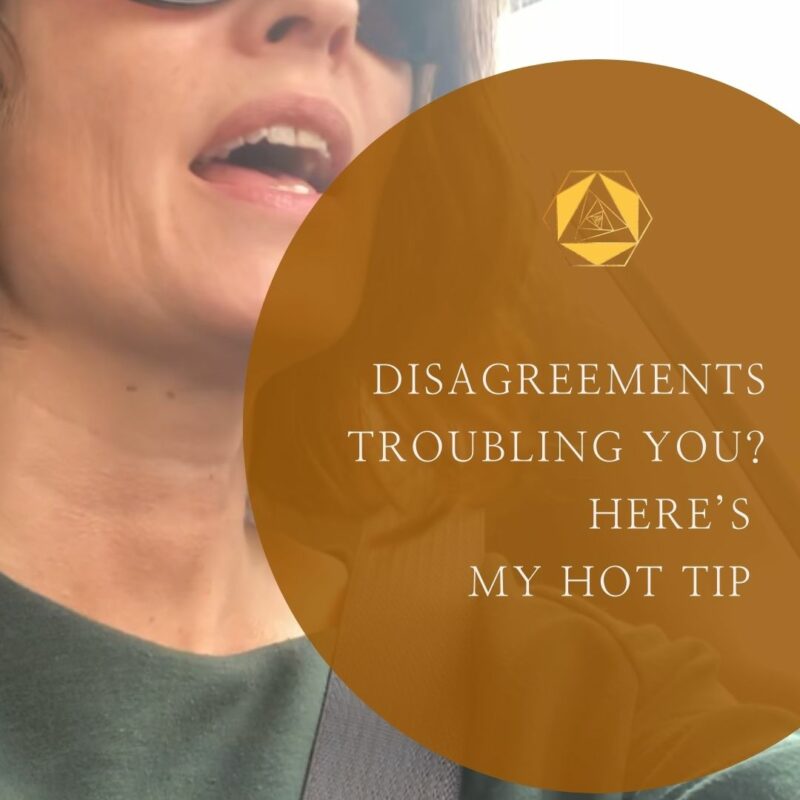Currently I’m just a little obsessed with the Dua Lipa/Elton John co-effort to revamp Cold Heart. I’ve literally been singing it for entire car rides on repeat and wake up with it on a regular basis.
A few days back I had a sudden realisation: however fun this little tune is and however enthusiastically I was singing it along, it actually touches on a pretty big No-No for someone who’s all about transparency, openness and courage in communication (Me!).
Remember that line where Dua sings “This is what I should have said. Well. I thought it but I kept it hid….’?! That one. Right there: this is what’s wrong with difficult conversations all the time.
We feel things. We think things. We are aware of things.
But we do.not.say.it.
We keep it hid.
Not saying it
Years ago I already wrote it in this blog on pitfalls to avoid in difficult conversation (this blog actually ended up being the basis for my book): not saying it is one of the biggest mistakes we make in difficult conversations. Not saying it can stem from fear or avoidance or doubt or self consciousness or … (you fill in any reason why you’ve kept things inside), but always, ALWAYS does it prevent real connection between you and the person you’re having the talk with.
There’s more than one reason for that.
Some of the reasons we don’t speak our mind
- fear to say it
- fear of the response
- fear of the consequences
- fear of hurting someone’s feelings
- unsure of what we really think/feel
- not willing to bear the consequences
- etc etc
You know, I’ve only just scratched the surface with my little list above, I’m well aware of that. But the point I want make here is not about the superficial reasons why we’re not speaking the truth. It’s all about the underlying consequence of hiding our true feelings.
Superficially you might think that by not saying something, you’re avoiding confrontations or fights. You may feel that you’re protecting feelings.
But the truth is that by not saying it, you’re actually avoiding true connection.
Connection is build on sincere exchange
Sincerity is a wonderful, ultra powerful emotion that we convey through our voice and our energy. I can’t make it any more straightforward. Sincerity is the key to unlocking cooperation in disagreements. It’s a powerhouse of a leadership and parenting tool. Although I have to admit that it’s really not a tool at all, as you cannot just use it. It’s there or it’s not there. Sincerity by definition cannot be faked.
When you’re hiding your feelings or opinions in an interaction with another person, you’re doing something that prevents sincerity. Although you’re not actually saying it, your energy is vibrating it out nonetheless.
When you’re not speaking your truth, you’re vibrating it.
And even though most people will not consciously understand what’s going on, they will sense that you’re holding something back. And when people sense you’re holding something back, they’re immediately triggered into feeling that they’re being deceived. And in this scenario, you are the deceiver.
So even when you aren’t saying something for altruistic reasons, you’re not building connection, but you’re breaking it down. Because trust and sincerity go hand in hand and your avoidance in speaking your truth is literally avoiding to really connect.
How truth builds connection
When you DO say what’s on your mind the big leap you’re making is into honesty. Ideally, when you’re skilled and experienced, you can get it to sincerity. And that’s when magical things start to happen. That’s when you build connection and rapport with the other person BECAUSE you are telling them the truth instead of ‘protecting their feelings’.
Does this mean you should just blurt out all the things that come up?
No, of course not. I didn’t write a book called The Mindful Guide to Conflict Resolution to teach you to go out and be nasty to other people.
No. If you follow the PAUSE approach I teach in my book (meaning you make sure you’re fully present, aware, check into the undercurrent and are on the look-out for synchronicities before you offer your part of the exchange), you’ll be able to connect to yourself while at the same time building your connection to the other person.
Is it that simple? Yeah, it’s that simple. That doesn’t mean it’s easy though, and I understand that this may bring up some stuff for you.
If so, I highly recommend sitting with that and wondering/meditating/free flow writing about the following questions:
- What do I believe about speaking my truth?
- Is there anyone in my life who told or taught me not to speak my truth?
- What’s the worst thing that can happen if I do speak my truth?
- What else?
- When did I experience this?
I would love to hear your take on this! Please share your side of this story in the comments
ABOUT THE AUTHOR
Rosalie Puiman is the founder of The Sovereign Self and the author of The Mindful Guide to Conflict Resolution. She works with people and teams who are ready to take off the masks and step into their true self to make their contribution in improving the world. She uses ThetaHealing, Human Design and Kundalini Yoga alongside Leadership coaching to support her clients. The Sovereign Leader Inner Circle is a wonderful way to explore her work.


